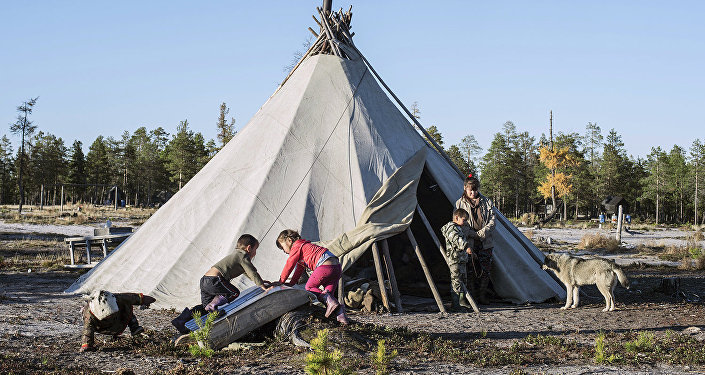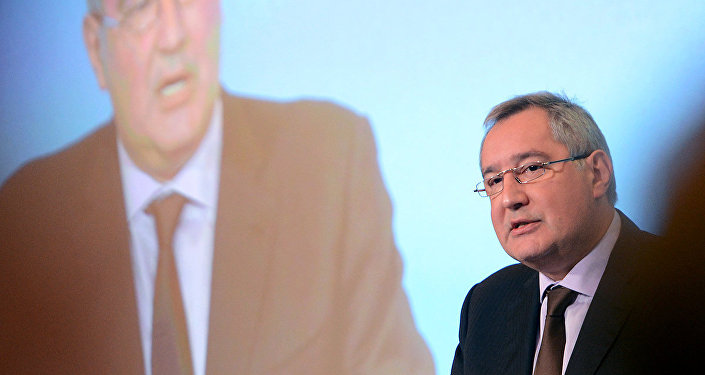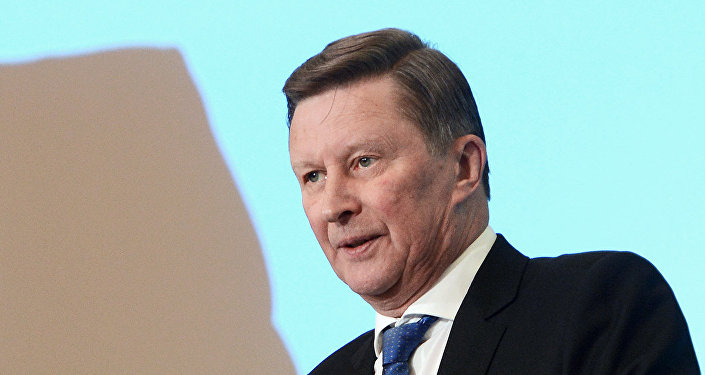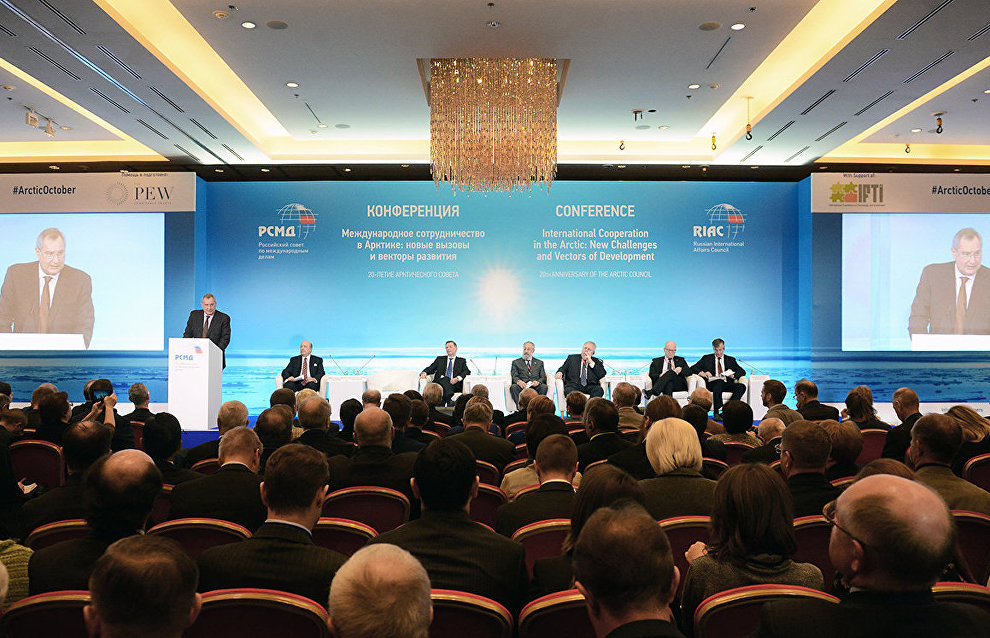International Cooperation in the Arctic: New Challenges and Vectors of Development – summing up the conference
The conference "International Cooperation in the Arctic: New Challenges and Vectors of Development" ended in Moscow. It was timed to the 20th anniversary of the Arctic Council. The conference was organized by the Russian International Affairs Council, which prepared venues for important discussions. Journalists believe this year the participants and speakers justified the high expectations. Arctic.ru sums up the results of the two-day forum and the main ideas that came out of it.
As the program explained, the conference was aimed at determining the outlines of the Arctic Council's institutional development, the prospects for the legal regulation of Arctic activities, the potential of economic projects in the region and forms of cooperation with non-regional players.
Day One: Meetings of experts
On Wednesday, October 12, experts met during several sessions to discuss the involvement of new players, including non-regional ones, in the work of the council, regulation of navigation in the Bering Strait, problems of the indigenous peoples and residents of the North, cooperation in education and science in the Arctic and the media's role in covering Arctic issues.
En Un Kim, Senior Fellow of the Russian Academy of Sciences Institute of the Far East, said that in the future Russia may have to contend with the intentions of the United States and other countries to internationalize the Arctic like Antarctica. The US position may enjoy support of states that are interested in getting access to the Arctic. He said that the South Koreans, for one, showed considerable interest in the Northern Sea Route and the region's resources. The South Korean government is studying changes in the Arctic environment and climate of the Arctic and the living standards of its indigenous minorities and has already drafted a plan for expanding its presence in the Arctic.
"We are in for a tough fight over the Arctic's status. As you know, the United States insists on internationalizing the Arctic like Antarctica. I am not against cooperation but the Artic should not have the same status as the Antarctic because we have mineral resources, people and military objectives there," En Un Kim said.
He added that historically the region had been divided into sectors of Arctic states. "All nations should not be allowed to take part in developing its resources or seize territory," he said.
Speaking after En Un Kim, Director- General of the Russian International Affairs Council (RIAC) Andrei Kortunov, who moderated the session, said he did not see contradictions between Russia and the United States in the Arctic at the moment. The Americans had enough territorial problems of their own.
"There are no major differences or contradictions between Russia and the United States in the Arctic. The Americans have many more problems with the Canadians regarding the status of the Northwest Passage," he said.
In the room next door, experts discussed another urgent issue — the interests of the indigenous minorities of the North. Former Mayor of Vorkuta and current President of the Union of Polar and Far North Cities Leonid Shpektor began his speech on a down note.

© RIA Novosti. Evgeny Biyatov. Proposal on free allocation of land to indigenous minorities of the North
"I have attended many such conferences but regrettably a lot of it is just talk and remains on paper. We are talking about the concept for the sustainable development of indigenous minorities of the North but it does not exist. For 13 years we've been talking about territories with traditional management of natural resources but they don't exist," he said. This is why he decided to show resolve at this conference and propose transferring to indigenous minorities of the North, free of charge, acreage in places of their residence, including lakes and rivers.
Shpektor believes that the main problems faced by the indigenous minorities of the North are as follows: lack of legal regulation of taxes imposed on reindeer breeders, the auction system for acquiring hunting areas, and fishing quotas. Minorities find it difficult to register at their places of traditional residence and apply for pensions. Shpektor suggests regulating these issues by law.
Day Two: From words to deeds
The second day of the conference was more official and businesslike. It was opened by Deputy Prime Minister Dmitry Rogozin. As though he heard Shpektor's words, Rogozin spoke about the latest Arctic initiatives that would hardly remain on paper. For example, Russia plans to carry out projects worth about five trillion rubles in its part of the Arctic until 2030.

© RIA Novosti. Sergei Mamontov. Rogozin: Russia to implement 150 projects worth 5 trillion rubles in the Arctic by 2030
"At the instruction of the State Commission on Arctic Development, the Ministry of Economic Development prepared a portfolio of projects in cooperation with the federal and regional authorities and organizations. Some of these projects are already being carried out while others have been selected by the Government for expedited implementation in the Arctic. We picked out 150 projects to be carried out until 2030 with a total worth of almost five trillion rubles: 48 percent of projects deal with processing minerals (including 14 percent with diamonds); 16 percent with transport, seven percent are about geological prospecting and the shelf, five percent about industry and power, and two percent about environmental protection, telecommunications and tourism. Four out of five trillion rubles will come from sources other than the [federal] budget," Rogozin said.
Project offices throughout the Arctic
Another large-scale government project provides for building project offices in each Arctic region until 2020. They would "be linked by a joint management system, as well as by the relevant economic, transport and social infrastructure," Rogozin said.
A system of critical development zones will be created in line with the need to establish a socioeconomic development framework for Russia's Arctic zone around economic development strongholds," Rogozin explained.
The mechanism should be envisaged in the Law on Developing the Arctic Zone of the Russian Federation. The mechanism will be produced by the authorities and the business community working together. The former would lift infrastructure restrictions while the latter would invest in projects.
New Arctic sanctuaries
At present, the total area of specially protected natural areas in Russia's Sub-Arctic amounts to 22.5 million hectares, including 6.5 million hectares of water areas. The Russian Arctic contains 80 percent of the region's biological species. "This imposes on Russia a special responsibility to preserve this potential," said Special Presidential Representative for Environmental Protection, Ecology and Transport Sergei Ivanov.

© RIA Novosti. Sergei Mamontov. Two national parks to be established in Russia’s Arctic zone by 2020
He said Russia had established strict environmental standards and was consistently implementing many large-scale nature protection projects. This is why the authorities have decided to establish new sanctuaries in the Sub-Arctic zone.
"Two new national parks will be formed by 2020 — Central Chukotka Park in the Chukotka Autonomous Area and Khibiny in the Murmansk Region. A new reserve, Bear Islands, will be set up in Yakutia," Ivanov said.
"The Arctic: Territory of Dialogue" forum set to return
All speakers agreed that international cooperation in the Arctic continued despite conflicts and sanctions. Rogozin said Arctic projects had not been discontinued unlike space projects. "Russia regards its neighbors in the Arctic to be natural, priority partners," Rogozin said.
Arctic countries will have an opportunity to discuss good-neighborly relations at the forum "The Arctic: Territory of Dialogue" in Arkhangelsk on March 30, 2017. The forum was not held for the past three years because active efforts were underway to create new technology for work in the Arctic, Rogozin said.
"We will show this technology to you. The forum will host an exhibition of new machines and equipment that have been developed recently," Rogozin said.
His idea to bring back the forum was supported by the founder of the original forum Artur Chilingarov and Sergei Ivanov.
